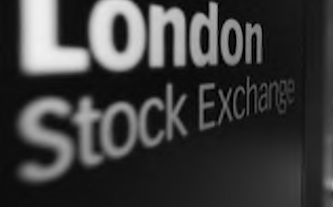Abrdn’s £1 billion Murray Income Trust has increase its dividends per share 4.3% to 36p despite its net asset value (NAV) falling 4% in the year ended June 30, 2022.
This compared to a strong 20.6% rise in NAV in the prior year.
A weaker second-half for the fund resulted in full year performance lagging its benchmark, the FTSE All-Share Index, which returned +1.6%.
Nonetheless, this was the 49th year of consecutive dividend increase from the trust.
Murray Income Trust’s earnings per share increased 20.2% from 33.7p to 40.5p.
“On a total return basis, the company’s share price decreased by 0.7% which reflected a narrowing of the discount to Net Asset Value at which the shares traded from 6.8% to 3.8%,” said the trust.
Murray Income Trust aims for a growing income combined with capital growth through investment in a portfolio principally of UK equities.
The fund’s 10 biggest investments at June 30 were AstraZeneca, Diageo, Relx, TotalEnergies, BHP Group, SSE, Unilever, Standard Chartered, BP and Euromoney Institutional Investor.
Charles Luke and Iain Pyle, managers of Murray Income Trust, wrote: “This relative underperformance since the start of 2022 reflects a market style rotation from growth and quality to value, initially benefitting the energy and financial sectors, with the outperformance of energy sustained following the Russian invasion of Ukraine.
“Interest rate increases, as central banks look to control rising inflation, have meant growth companies with long-dated cash flows underperformed.
“Given the portfolio’s focus on high quality companies, underweight position in energy and tobacco stocks, and its above Benchmark exposure to mid-cap companies, it is unsurprising that the portfolio underperformed in these circumstances.
“Long term returns remain positive compared to the Benchmark and it is also important to consider risk-adjusted returns or, in other words, how much performance is being generated for each unit of risk.
“One measure of this is the ‘information ratio’ and it was pleasing that the company, for the second consecutive year, was awarded the Citywire UK Equity Income Investment Trust of the Year for a three year information ratio considerably ahead of all of its peers.”
Murray Income Trust chairman Neil Rogan said: “We find ourselves in a scarcely credible era of uncertainty and without strong political, economic or social leadership.
“Domestic politics, geopolitical tensions and war, inflation, labour shortages, recession, strikes, energy shortages; all these factors have the capacity to heavily affect the outlook for the companies in which we invest.
“Every one of them is impossible to predict with confidence at the moment. So what is the outlook? In truth, we can’t be sure.
“All the issues are fixable but not without strong leadership. That’s the most concerning thing this time around.
“After similar issues in the 1970s, the 1980s saw Margaret Thatcher, Ronald Reagan, Mikhail Gorbachev and, perhaps most importantly, Paul Volcker (chairman of the US Federal Reserve from 1979 to 1987) provide very strong leadership and guide their countries to recovery.
“I’m a naturally optimistic person so I scour the TV news and politics programmes for the world’s new generation of strong leaders which will take us towards recovery. I’m still looking. Full recovery may take a long time.
“What will happen to the companies in the portfolio while we wait? Based on trailing earnings, the PER (price to earnings ratio, the most popular stock valuation measure) of the current portfolio is 13x. That is down from 16x six months ago and is the lowest I have seen it in the eight years I have been a director.
“It has been as high as 20x. To me that means that a lot of the bad news is priced in. If you think about the headlines we’ve been reading these past six months, it is possible to make a case that much of the bad news is behind us.
“But note that this is a valuation measure based on the previous 12 months of earnings. If corporate earnings are about to tumble, then stock markets could move down in parallel and still give the same valuation.
“That’s the real danger, so not surprisingly the Investment Manager is analysing our holdings’ earnings prospects with extra vigilance.
“One of the main reasons behind the Investment Manager’s quality philosophy is that the companies selected should be sufficiently robust and well managed to withstand turbulent times like these.
“We have great faith in the Investment Manager’s long-term investment approach.
“In theory, it should be a good moment for quality. In reality, we will have to wait and see.”
